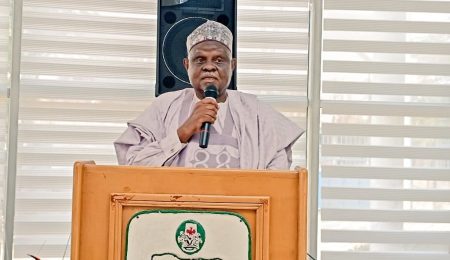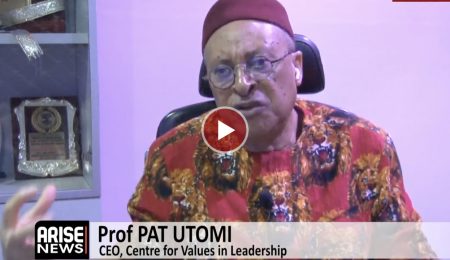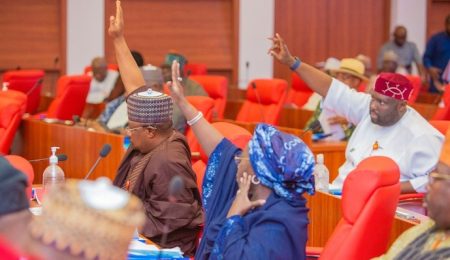Prominent constitutional lawyer, Professor Auwalu Yadudu, has cautioned against calls for a total overhaul of Nigeria’s 1999 Constitution, stating that such a move would be both impracticable and potentially damaging to the country’s legal legitimacy.
Speaking during an interview with ARISE NEWS on Tuesday regarding the need for constitutional reform, Yadudu argued that while there is widespread consensus on the need for urgent amendments—particularly around the electoral framework—a wholesale abandonment of the current constitution is not a feasible solution.
“A wholesale abandonment is impracticable,” he said. “Perhaps it will also cause a legitimacy issue.”
Yadudu noted that several sections of the constitution can—and should—be amended to improve governance, especially to enhance electoral credibility and broaden gender inclusion in the political space. He cited ongoing legislative efforts in the National Assembly aimed at deepening electoral reforms and creating an enabling environment for greater female participation.
According to him, challenges in the operation of the constitution are not unusual and can often be addressed through judicial interpretation rather than discarding the constitution entirely. He also acknowledged public skepticism about the judiciary’s role in electoral matters but maintained that courts have historically played a vital role in shaping Nigeria’s constitutional and political order.
“There are quite a number of areas in the constitution that can be amended to make things work better. I’m sure there will be areas that can be tweaked and modified to make for better operation.
“Some of the things that we have a problem with may be addressed through judicial interpretation. I know that a lot of people have a little opinion of the judiciary because of the murky waters that they are involved in, in electoral matters. But I think the judiciary has the power under the constitution to interpret sections in a manner that will enhance the operation of the constitution.
“There are also bills seeking to create an enabling environment for greater gender participation in the political process.”
Reflecting on the past, he recalled that key constitutional clarifications during Nigeria’s Second Republic were achieved through court rulings, and insisted that the current system remains flexible enough to accommodate necessary reforms through its existing framework.
He said, “A lot of our seminal and very important decisions which regulate the political process and the constitutional process were arrived at by the judiciary. I think they can also have a say in that. I wouldn’t want to have to go through a litany of what sort of issues can be ameliorated or may be better adjusted, but there are, and the constitution is not something cast in stone that you cannot change on its own terms,” he stated.
Melissa Enoch
Follow us on:


